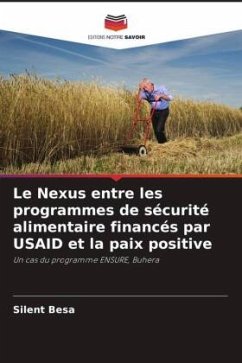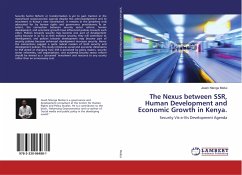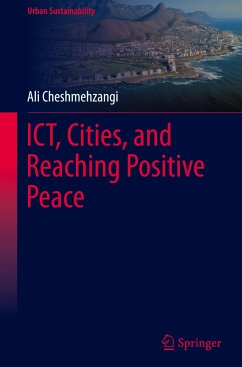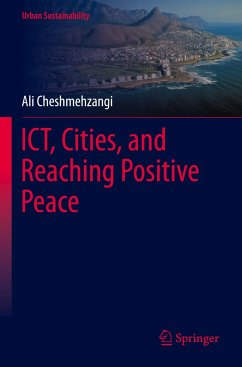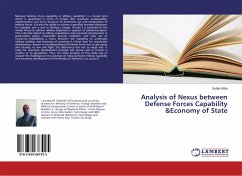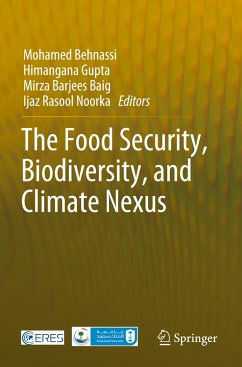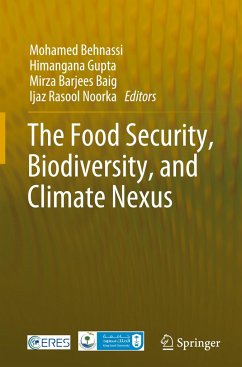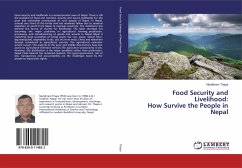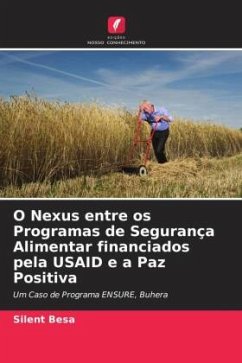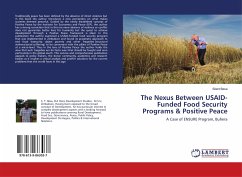
The Nexus Between USAID-Funded Food Security Programs & Positive Peace
A Case of ENSURE Program, Buhera
Versandkostenfrei!
Versandfertig in 6-10 Tagen
27,99 €
inkl. MwSt.

PAYBACK Punkte
14 °P sammeln!
Traditionally peace has been defined by the absence of direct violence but in this book the author introduces a new perception on what makes societies deemed peaceful. Guided by the newly established concept of Positive Peace by the Institute for Economics and Peace (IEP), the author has a strong conviction that in this era mere absence of violence or conflict does not guarantee better lives for humanity but the quest to achieve development through a Positive Peace framework is ideal. In this publication the author examined a USAID-Funded food security program that was implemented in Zimbabwe ...
Traditionally peace has been defined by the absence of direct violence but in this book the author introduces a new perception on what makes societies deemed peaceful. Guided by the newly established concept of Positive Peace by the Institute for Economics and Peace (IEP), the author has a strong conviction that in this era mere absence of violence or conflict does not guarantee better lives for humanity but the quest to achieve development through a Positive Peace framework is ideal. In this publication the author examined a USAID-Funded food security program that was implemented in Zimbabwe and found its pragmatic approach to end food insecurity, abject poverty and other tragedies (structural violence/social suffering) to be conversant with the pillars of Positive Peace at a micro-level. Thus in the lens of Positive Peace the author holds the view that such tragedies are de facto wars that should be fought and won particularly in the global south. This concise and comprehensivepublication appeals to policy makers, the donor community, academics and research bodies as it invokes a critical analysis and proffer solutions for the current problems that the world faces in this age.



